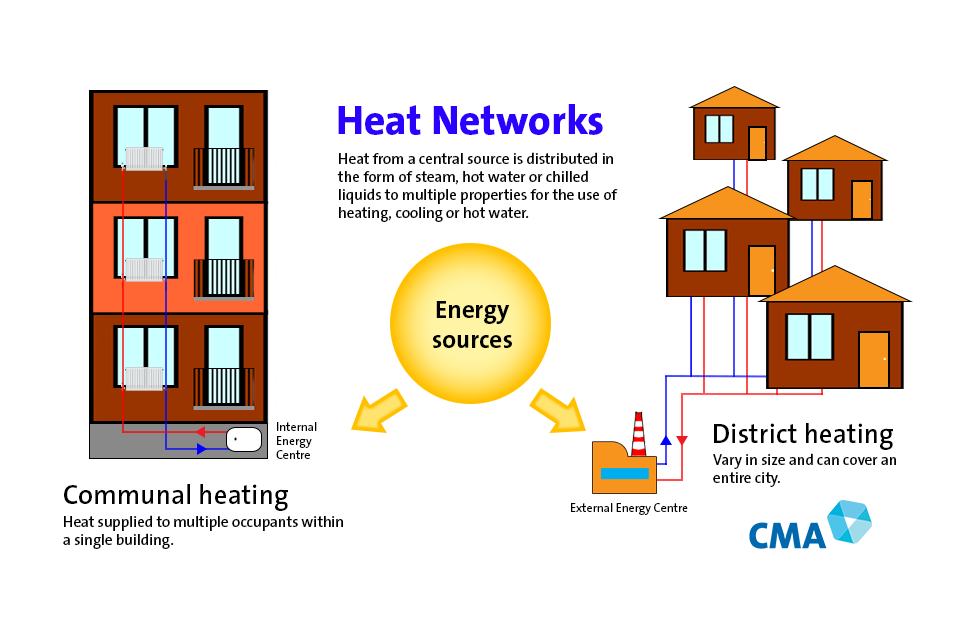Heat Networks: advice for customers
Published 23 July 2018
Heat Networks supply heat & hot water from a central source to customers via a pipe network. Well-functioning heat networks are an environmentally friendly alternative to gas and electric heating and part of the government’s plan to cut carbon emissions.

We’re recommending that heat networks should be regulated. However, until regulation is in place, here’s what you need to know and do to get the most out of them.
When thinking about moving home
First, be clear what the heating/ hot water arrangement is, check if the property has an electric or gas boiler, if it doesn’t it’s likely to be on a heat network.
Ask your estate, letting agent, or landlord for:
- the Energy Performance Certificate (EPC) – every property for sale or rent must have an EPC which will state a heat cost estimate for that property. However, EPCs currently do not include repair and maintenance costs (which would appear as standing charges in your bill) so you should ask for estimates.
- the name and contact details of the heat supplier.
- information on prices – this may be included in a heat supply contract, tenancy/lease agreement or service charge summary. If it is not included, you should ask for estimates and expectations of future price changes.
- information on service – ask for details on heat supply interruptions, who to contact if there is a problem, what the agreed response time is and any compensation for unplanned outages.
- ask if the heat network is part of any consumer scheme.
Do your own research - check online forums for customer opinions of the network.
Why this is important
Well-functioning heat networks benefit the environment but can have long customer contracts – up to 25 years. This means you can’t easily switch if you’re unhappy with a network, so it’s essential you know what you’re signing up to.
Research your heating supply before moving home to get the best deal for you.
Living with a heat network
Remember, your heat network supplier must:
- provide clear, transparent bills on a regular basis which state all fixed and variable costs
- provide clear information about your current supply and contract
How to make a complaint
If you’re unhappy with the service or cost, first contact your supplier directly - voice your concerns.
- your operator should have a clear complaints handling process (Contact your freeholder or managing agent for your supplier details if you don’t have them)
- ask your supplier for a full breakdown of costs and how bills are calculated
- remember, heat network standing charges commonly cover maintenance (and replacement) of the boiler, which you might have to pay for separately with traditional gas and electricity supply
Talk to your neighbours who may be facing similar challenges. Collectively you will have more bargaining power with your supplier. You may be able to do this via a Residents or Tenants Association.
For more information
Contact your supplier directly to voice concerns.
For more detail on heat networks in general, see The Heat Trust
You can also get advice from Citizens Advice, GB consumer helpline: 03454 04 05 06
In Northern Ireland you can get advice from nidirect government services, Consumerline: 0300 123 6262
At the CMA we’re reminding heat network suppliers of their customer responsibilities.
Find out more about our views and recommendations concerning heat networks

